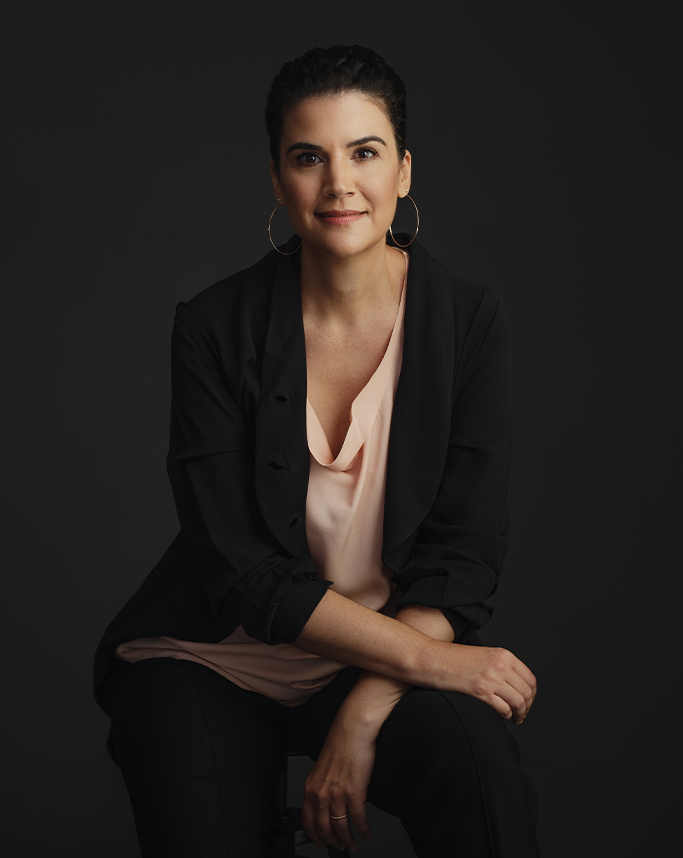SUMMARY
Female entrepreneurship is flourishing, while wealth is increasingly passing to women via intergenerational transfers. This calls for fresh thinking and approaches from wealth managers to enable them in their activities.
Women today may already control as much as a third of the world's wealth.1 We believe this figure is set to continue rising rapidly. Indeed, by the end of this decade, more than half of wealth globally may be woman-owned.2
More and more women are generating wealth as founders of cutting-edge businesses, leaders of established corporations and owners of impactful investment portfolios. At the same time, the largest intergenerational wealth transfer in history is underway. Over the next ten years, as much as $100 trillion of assets may pass between the baby boom generation and their successors – with a significant proportion going to women.3
Women in wealth - key statistics
- Global wealth controlled by women:
32%4
- Self-made women billionaires worldwide:
4%5
- Start-ups globally with at least one female founder:
20% – doubling 2009–20196
Unleashing female entrepreneurship is good for everyone
While women are on course to control a majority of wealth globally, gender inequality persists throughout the global economy.
Women currently participate in entrepreneurship at 80% the rate of men. While this marks a welcome improvement over the past 20 years,7 women still face many more challenges in founding and growing businesses. Highly unequal access to finance is among the greatest of these. Just 2.8% of venture capital funding flowed to women in 2019, falling to 2.3% in 2020.
The case for addressing such imbalances is compelling. Citi GPS analysis found that closing the gender gap in business growth could boost global GDP by $2.3 trillion and add up to 433 million jobs.8 In addition to spurring growth, unleashing female entrepreneurship drives wider benefits across society and households. Women-owned and -led businesses typically employ more women, creating a virtuous circle of empowerment. Women tend to invest more of their income than men in the health, education and welfare of their families and communities.
While the potential benefits are clear, their realization demands a multifaceted approach. Improving access to capital, expanding education and training, creating networking opportunities, promoting gender equality within the business ecosystem, and enabling better childcare and family support are just some of what will be required. Governments, private companies, investors and the voluntary sector all have parts to play.
Nothing can be taken for granted. And unforeseen challenges can easily hinder or reverse progress. The COVID-19 pandemic was a prime example. While the health crisis disrupted economic activity and livelihoods throughout the world, women suffered disproportionate fallout. Overall, they were likelier to lose jobs and income, contributing to renewed widening of gender wealth and wage gaps.
How we serve women entrepreneurs and other wealth owners
Citi Private Bank is proud to serve many women entrepreneurs, corporate executives, inheritors, family principals and philanthropists. For such individuals, having the right wealth management partner is vital.
Among the ways in which we address their needs are helping them to build global investment portfolios, manage personal and business cash, and plan their wealth. For business founders, we can give introductions to colleagues across Citi, who provide access to capital raising, strategic partnerships and monetization guidance.
From experience, we know great things can happen when dynamic people come together. We therefore created Women in Wealth, a community dedicated to engaging, educating and elevating female clients. As part of this, we are committed to learning that advances financial wellness, the peace of mind that results from effective disciplines around investing, spending, borrowing and wealth planning.
Women in Wealth seeks to demystify a wide range of key topics including private investing, leadership, succession and multigenerational wealth planning, and philanthropy. We present our latest thinking on markets and long-term themes reshaping the world, such as sustainable investing and innovative technologies like AI.
Connectivity is the essence of Women in Wealth. Our network’s regular gatherings are designed to inspire strategic thinking, provide insights into new ventures, offer potential co-funding opportunities, and create invaluable connections with peers and thought leaders of all genders.
Walking the walk
Citi champions gender equality as part of our wider efforts to advance diversity. Our organization was a pioneer within the financial industry by introducing transparency around our corporate practices to narrow the gender pay gap. We were also among the first Fortune 500 companies to achieve gender parity on our board, with over half of our board of directors being women and 37% being racially/ethnically diverse.
With the appointment of Jane Fraser in 2020, Citi became the first ever major Wall Street bank to be led by a female CEO. And since 2021, Ida Liu has served as the head of Citi Private Bank. We are striving to increase representation at every level. The number of women appointed as Citi managing directors – the most senior level – hit the highest in recent years in 2022, also accounting for one-third of the total.9
How might we empower your activities?
Despite the rapidly growing share of global wealth controlled by women, female economic empowerment has far to go. The financial industry likewise needs to continue to increase its focus on women, having traditionally been geared toward serving men. Our organization is dedicated to playing its part in this vital progress.
If you would like to learn more about Citi Private Bank’s services and our Women in Wealth community, we would be delighted to hear from you.


















